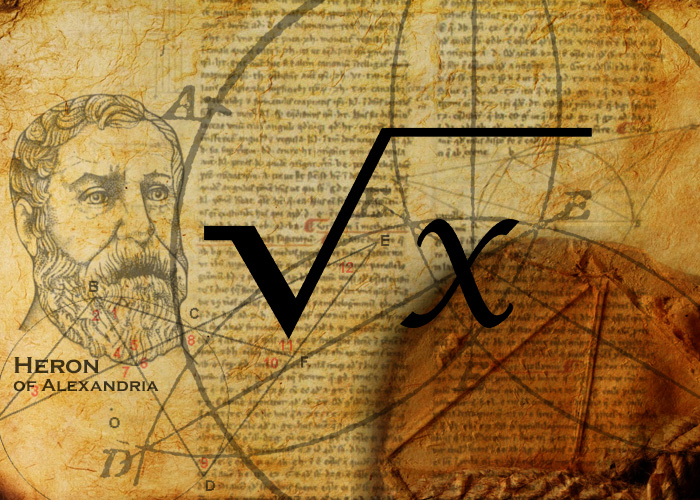I’ve came across an interesting way of extracting square roots using just pencil and paper. As far as I could remember, I haven’t encountered this method (nor any other method) except thru a calculator in solving square roots.
The Babylonian method also known as Heron’s method involves making an estimate, dividing and averaging, over and over, to find a more accurate output. In this Babylonian Method, we start with an arbitrary positive number (closer to the actual square root), and then apply the following iterative process:
Xn+1 = ½ ( xn + a/xn) Eq. 1
Where: a – square root value (positive real number); xn – arbitrary positive number
Babylonian Method of extracting Square Roots uses an iterative step, as follows:
Step 1: Make a guess (make a close guess to the actual square root, using perfect squares)
Step 2: Divide your original number by your guess
20 / 4.5 = 4.444
Step 3: Find the average
(4.444 + 4.5) / 2 = 4.472
Step 4: Use the resulting average as your next guess
Example:
[pmath]sqrt{20}[/pmath]
We know that the [pmath]sqrt{16}[/pmath] = 4 and the [pmath ]sqrt{25}[/pmath] = 5, hence, we could initially estimate that [pmath]sqrt{20}[/pmath] is somewhere 4.5 (if your initial estimate is close to the actual extracted square root , the shorter the iteration)
| Iteration (xn) |
Guess |
Divide |
Average |
|
0 |
4.5 |
20 / 4.5 = 4.444 |
(4.444 + 4.5) / 2 = 4.472 |
|
1 |
4.472 |
20 / 4.472 = 4.472 |
(4.472 + 4.472) / 2 = 4.472 |
Since the second guess (i.e., 4.472) is the same as the first iteration of the average, we can say that:
[pmath]sqrt{20}[/pmath] = 4.472
Using, Eq. 1, substituting the values: xn = x0 = initial estimated value, let say 4.5. And a = the value inside the square root, we can get the value of our first iteration (xn+1):
Xn+1 = ½ ( xn + a/xn)
X1 = ½ (4.5 + 20/4.5)
X1 = 4.472
Our second iteration would be:
X2 = ½ (x1 + a/x1)
X2 = ½(4.472 + 20/4.472)
X2 = 4.472
Since x1 & x2 are the same, hence, [pmath size=18]sqrt{20}[/pmath] = 4.472
Example 2:
Let’s try:
[pmath size=24]sqrt{645}[/pmath]
Our initial estimate would be:
[pmath]sqrt{625}[/pmath] = 25 and [pmath]sqrt{676}[/pmath] = 26, we can set x0 = 25
|
Iteration (xn) |
Guess |
Divide |
Average |
|
0 |
25 |
645 / 25 = 25.80 |
(25.80 + 25) / 2 = 25.40 |
|
1 |
25.40 |
645 / 25.40 = 25.3937 |
(25.3937 + 25.40) / 2 = 25.39685 |
|
2 |
25.39685 |
645 / 25.39685 = 25.39685 |
(25.39685 + 25.39685) / 2 = 25.39685 |
Therefore, [pmath]sqrt{645}[/pmath] = 25.39685
Alternatively, using Eq. 1, setting a = 645; x0 = 25; we get:
X1 = ½(x0 + a/x0) = ½(25 + 645/25) = 25.40
X2 = ½(x1 + a/x1) = ½(25.40 + 645/25.40) = 25.39685
X3 = ½(x2 + a/x2) = ½(25.39685 + 645/25.39685) = 25.39685
Since, x2 equal to x3, hence, [pmath]sqrt{645}[/pmath] = 25.39685


